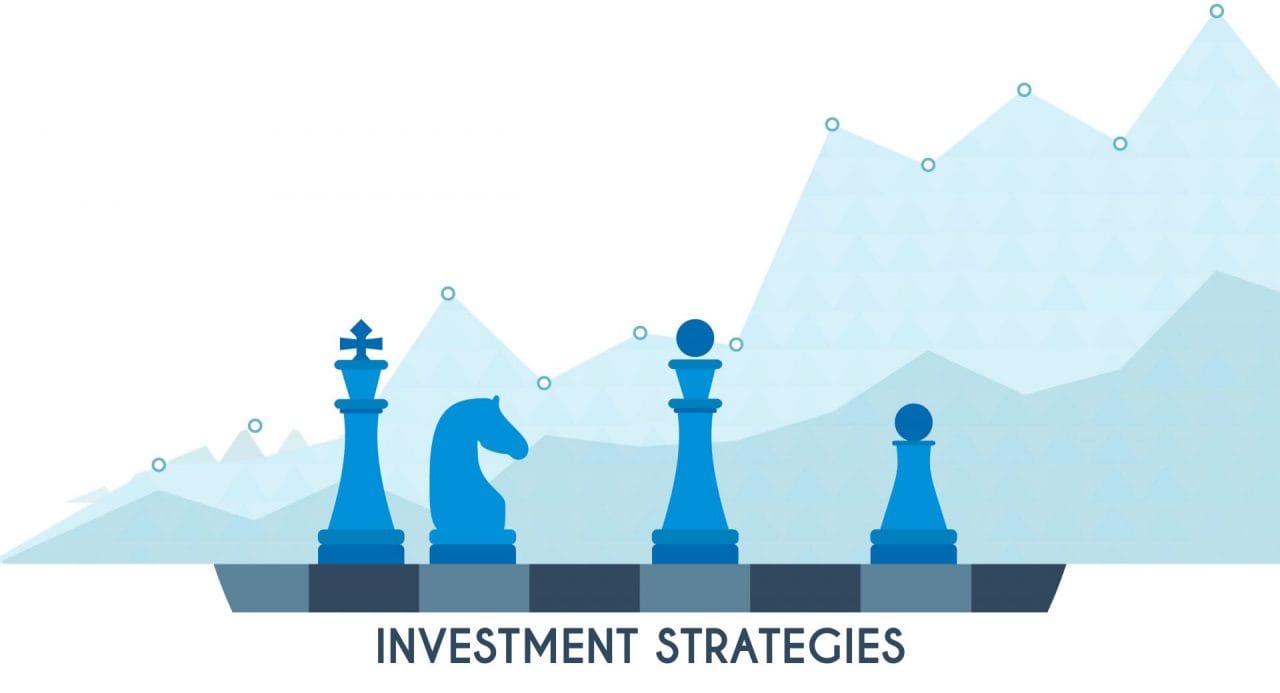Urban development can be a great investment opportunity, especially for those first-time investors looking for long-term growth and returns. Urban development projects involve the construction or redevelopment of buildings, infrastructure, and public spaces in urban areas.
Investing in a developing city can offer several advantages for first time investors. One of the most significant benefits is the lower cost of money associated with investing in these areas. Real estate prices, wages, and operating cost of money are often much lower in developing cities than they are in established cities. This can make it easier for first-time investors to enter the market and get started with their investment journey.
As these cities continue to grow and expand, the demand for housing, retail, and other services will also increase. This can create opportunities for investors to invest in real estate or businesses that cater to this growing market, providing potentially high returns on investment.
Governments in developing cities often offer incentives to attract investors and promote economic growth. This can include tax breaks, subsidies, and other forms of support that can help investors get started and grow their businesses. By taking advantage of these incentives, first-time investors can position themselves for success in these emerging markets.
Investing in a developing city can also provide exposure to emerging markets with untapped potential. By investing early on, investors can position themselves to benefit from the growth and expansion of these markets over time, potentially generating substantial returns on investment.
Many developing cities have a strong focus on innovation and technology as a way to spur economic growth. This can create opportunities for investors to invest in startups, incubators, and other innovative ventures that have the potential for high returns.
What Makes a City Attractive to Investors?
Developing cities often attract investors because they offer attractive investment opportunities. For example, these cities may have low property prices, high rental yields, or strong growth prospects.
In addition, many developing cities are characterized by rapidly expanding middle classes, which can provide a ready market for businesses and investors alike. Furthermore, developing cities often benefit from government incentives and programs aimed at attracting investment, such as tax breaks, subsidies, and favorable regulations.
Strong and growing economy is often characterized by a thriving business environment, a diverse range of industries, and a healthy job market. These factors create new opportunities for businesses and investors to tap into, resulting in potentially high returns on investment.
A city with well-educated and highly skilled workforce can be highly attractive to businesses and investors, as it can help companies stay competitive and drive innovation. This, in turn, can lead to greater investment opportunities and long-term growth potential.
Accessible infrastructure is also a key factor that makes city’s attractiveness. This includes transportation, communication, and energy networks that enable businesses to operate efficiently and effectively. A city with well-developed infrastructure can make it easier for businesses to move goods and services, access customers, and reach new markets.
Political stability can provide a sense of security and predictability, which can encourage businesses and investors to make long-term investments. Conversely, political instability and uncertainty can create significant risks for investors, leading to greater volatility and potential losses.
Proximity to markets is also a key consideration for investors. Cities that are located near major markets, whether domestic or international, can be highly attractive to businesses and investors. This proximity can help businesses reach new customers and expand their reach, which can lead to increased investment opportunities and long-term growth potential.
The quality of life in the city attract and retain investors. A high quality of life can include access to cultural amenities, affordable housing, good schools, and a safe and welcoming environment. Cities that offer these amenities can help businesses attract and retain talented workers, which can lead to increased productivity and long-term growth potential.

Investment Potential
Investing in developing cities offers significant potential for growth and returns. Such cities are often characterized by rapidly growing populations, expanding economies, and favorable demographic trends. As a result, they offer investors a wide range of investment opportunities, from real estate and infrastructure projects to small and medium-sized businesses.
In addition, many developing cities are strategically located and offer easy access to regional and international markets. This makes them attractive to foreign investors, who are increasingly looking for opportunities in emerging markets.
Urban Development
Investing in urban development is a smart idea for first-time investors because it can lead to substantial returns over time. Urban development refers to the process of building new infrastructure, housing, and commercial projects in cities and towns.
Such development can help to create new jobs, increase property values, and stimulate economic growth. As a result, investing in urban development can be a great way to tap into the potential of developing cities and take advantage of their growth prospects.
Investment Climate
The investment climate in developing cities can be favorable for first-time investors because it offers a range of opportunities and incentives. For example, many developing cities have low taxes, favorable regulations, and strong legal frameworks for investment.
Many governments in developing cities are actively seeking foreign investment, which can provide opportunities for first-time investors to tap into new markets and diversify their portfolios. Furthermore, the investment climate in developing cities is often characterized by high levels of innovation and entrepreneurship, which can create a vibrant and dynamic investment environment.
Skilled Workforce
Developing cities often have a skilled workforce that can provide opportunities for investors. Skilled workers can help to drive economic growth by creating new businesses, providing valuable services, and generating new ideas and innovations. As a result, investing in developing cities can be a great way to tap into the potential of a skilled workforce and take advantage of the opportunities it presents.

Financial Advisors
First-time investors can benefit from the advice and guidance of financial advisor when investing in developing cities. Financial advisor can help investors to understand the risks and rewards of different investment opportunities, as well as provide guidance on how to manage their portfolios and achieve their financial goals.
Financial advisors can help investors to avoid common pitfalls and mistakes when investing in developing cities, such as overexposure to certain asset classes or taking on too much risk.
Dollar Cost Averaging
Dollar cost averaging is a smart investment strategy for first-time investors looking to invest in developing cities. Dollar cost averaging involves investing a fixed amount of money at regular intervals, regardless of the price of the investment. This can help to smooth out the ups.
Pay Dividends
Investing in developing cities can pay dividends in the form of potential high investment returns. These cities often offer growth opportunities in various sectors such as real estate, technology, and infrastructure, which can lead to increased investment returns.
Balanced Socio Economic Development
Developing cities that are committed to balanced socio-economic development can attract more investors. When a city invests in education, healthcare, and other social programs, it creates an environment that is conducive to economic growth, which can attract investors seeking to invest in sustainable businesses.
Location Choices
Choosing the right location for your investment is crucial for its success. Developing cities with a growing economy and infrastructure offer a great opportunity for first-time investors. The location should have access to transportation, amenities, and other services to ensure that the investment is attractive to potential renters or buyers. Additionally, local laws and regulations should be reviewed to ensure that the investment is legally viable.
Investment Portfolio
An investment portfolio is a collection of assets such as stocks, bonds, mutual funds, ETFs, real estate, and other investment vehicles owned by an individual or organization. The purpose of an investment portfolio is to diversify risk and maximize returns by investing in a variety of assets that have different levels of risk and return.
To create an investment portfolio, an investor typically begins by setting investment goals and assessing their risk tolerance. They then choose a mix of asset classes that align with their goals and risk tolerance, and allocate their funds accordingly. The allocation of funds can be based on factors such as the investor’s age, financial situation, and investment horizon.
Investing in a developing city can offer unique opportunities and risks for an investment portfolio. Developing cities often have a growing population, expanding economies, and increasing demand for infrastructure, housing, and commercial properties. These factors can provide investors with potential growth opportunities and the chance to diversify their portfolio.

Investment Strategy
Investing in a developing city requires a unique investment strategy that takes into consideration the opportunities and risks of investing in an emerging market. Here are some key elements to consider when developing an investment strategy in a developing city:
- Conduct extensive research: Before investing in a developing city, it is important to conduct extensive research and analysis of the region’s economic and political conditions, as well as the specific investment opportunities available. This can include examining macroeconomic indicators, such as GDP growth, inflation rates, and foreign direct investment flows, as well as industry-specific trends and forecasts.
- Evaluate the regulatory and legal framework: Developing cities may not have well-established legal systems, which can pose challenges for investors who seek to protect their investments. It’s important to evaluate the regulatory and legal framework in the region and to understand any potential risks or barriers to investment.
- Diversify your portfolio: Investing in a developing city can offer potential growth opportunities, but it also comes with risks. One way to manage these risks is to diversify your portfolio by investing in multiple sectors or asset classes. This can help to mitigate the impact of any single investment that may not perform as expected.
- Partner with local experts: Developing cities often have unique cultural and business practices that can be difficult for outside investors to navigate. Partnering with local experts, such as lawyers, accountants, and business consultants, can help to provide valuable insights and support for your investment strategy.
- Have a long-term perspective: Developing cities may experience significant fluctuations in economic and political conditions. It’s important to have a long-term perspective when investing in a developing city and to be patient with your investments. This can help to ride out any short-term fluctuations and allow your investments to grow over time.
Investing in a developing city requires a well-researched investment strategy that takes into consideration the unique opportunities and risks of investing in an emerging market. By diversifying your portfolio, partnering with local experts, and having a long-term perspective, you can build a successful investment portfolio in a developing city.

A Strong Economy with Growth Potential
A strong economy with growth potential is the economy that is currently performing well and has the potential to continue growing in the future.
There are several key indicators that suggest a strong economy, including low unemployment rates, steady GDP growth, low inflation, and a stable currency. Also, a strong economy typically has a robust business environment, with high levels of investment, innovation, and entrepreneurship.
Growth potential is the ability of an economy to continue expanding over time. This can be influenced by factors such as government policies, natural resources, education and skills development, and technological advances.
A strong economy with growth potential typically offers favorable conditions for businesses to operate and expand, including a stable regulatory environment, a skilled workforce, and access to human capital.
Investing in a strong economy with growth potential can offer attractive opportunities for investors, as it can provide a stable and predictable environment for businesses to operate and generate profits.
Additionally, a strong economy with growth potential may attract foreign investment and offer a range of investment opportunities across various sectors.
However, it is important for investors to conduct thorough due diligence and analysis to identify the most promising investment opportunities within a given economy, taking into account factors such as market trends, competitive landscape, and regulatory requirements.

Mutual Funds
Investing in mutual funds in a developing city can offer attractive opportunities for investors looking to capitalize on economic growth and emerging market trends. Developing cities often have rapidly growing economies, expanding middle classes, and increasing levels of consumer and business activity. These trends can create attractive investment opportunities in various sectors, including technology, infrastructure, healthcare, and consumer goods.
Mutual funds offer several advantages for investors seeking exposure to developing cities. By investing in a mutual fund, investors can gain access to a diversified portfolio of securities, which can help to reduce risk and volatility in their portfolio. Additionally, mutual funds are managed by experienced professionals who have expertise in identifying investment opportunities and managing risk in emerging markets.
Investing in mutual funds in developing cities can also provide opportunities for long-term growth and capital appreciation. As these cities continue to grow and develop, they may experience increased demand for goods and services, leading to potential growth in the companies and industries in which mutual funds invest.
However, investing in mutual funds in developing cities also carries some risks. Emerging markets can be subject to political and economic instability, currency fluctuations, and regulatory changes, which can impact the performance of mutual funds investing in these markets. Additionally, mutual funds investing in developing cities may have higher management fees and expenses than those investing in more established markets.





